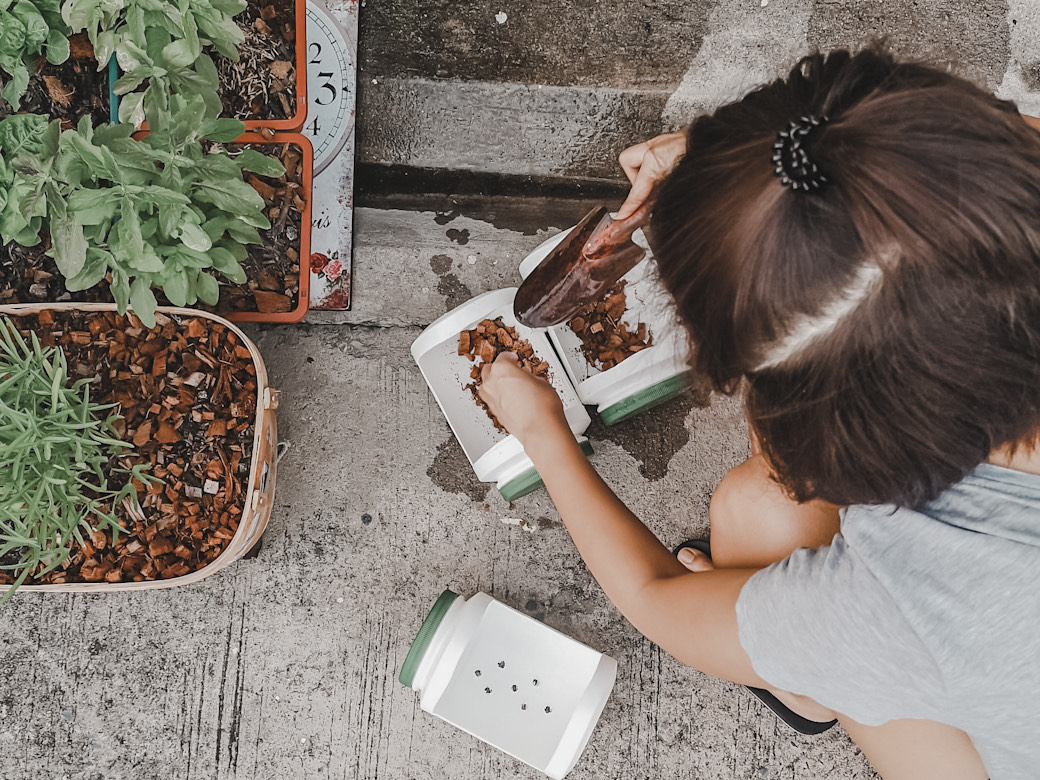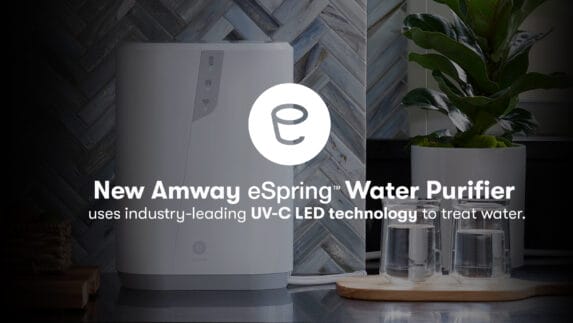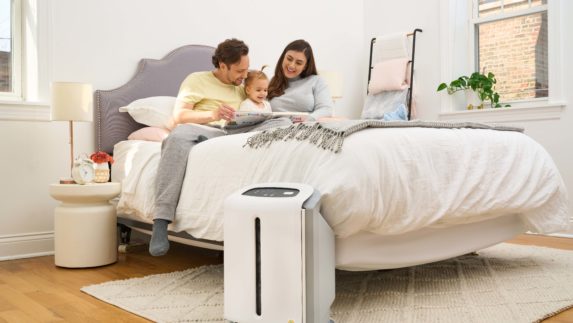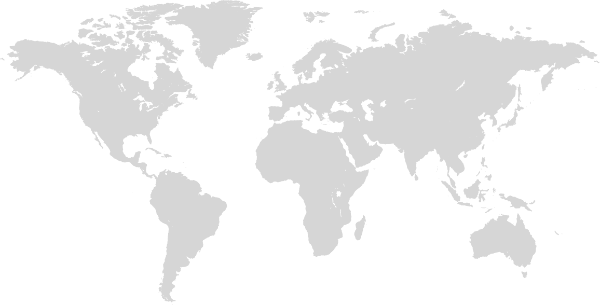Less is more. Little things mean a lot. Adages like these hold especially true for people and the planet. Chances are, if you use it, you can reduce, reuse or recycle it. And even the smallest changes in your lifestyle can have a big impact on your environmental footprint. Use these tricks to boost your sustainability IQ.
Reduce
Sure, you buy organic and eat clean, but do you clean clean? Shop for biodegradable products that harness the power of plant-derived cleaning agents . Highly concentrated formulas like Amway Home™ L.O.C.™ Multi-Purpose Cleaner reduce your use and streamline cleaning into one product, ultimately saving you time, space and money. Did you know, a 1L bottle will refill the 16.9oz spray bottle 20 times! Less product per use also means fewer demand on natural resources in manufacturing, reduced shipping emissions and less plastic.
Another way to reduce waste is to ditch disposable goods like paper products for reusable dishes and cloth napkins, as well as storing your food in resealable containers, not single use plastic wrap or aluminum foil. Buying in bulk reduces packaging waste, too.
Reuse
The average American consumes 168 plastic bottles per year––and only 1 in 5 get recycled, creating three billion pounds of unnecessary plastic waste. Think green and reach for a reusable water bottle instead. Better yet, invest in home water filtration like an eSpring™ UV Water Purifier, which effectively destroys 99.99% of waterborne viruses and bacteria, and
effectively reduces more than 140 potential health-effect contaminants right at your tap. Over time, the eSpring™ water treatment system provides significant savings. The cartridge needs to be replaced just once a year. During that year, the cartridge filters the equivalent of 10,000 bottles of water (5,000 liters or 1,320 gallons).
Skip the garbage disposal. With just a little effort, your scraps can be composted into weed-free nutrient-rich humus, which renews soil’s vitality, fuels garden growth and even helps ward off plant disease. Composting can cut an incredible 30 percent of the solid waste headed to the landfill, and it’s also a natural alternative to chemical fertilizers. So grab a bucket and toss your leftovers, coffee grounds, egg shells and plant trimmings inside. Seal it will a lid and let nature take its course. (Avoid adding meat, fish and fruit peels like oranges and bananas to your bucket, since they often have a high level of pesticides and will not compost well.)
Recycle
Paper, plastic, glass, batteries, electronics, oil, tires––yes, most can be recycled. The trick is to know how and where.
- Paper: Start by buying paper with high recycled content. When you do go to recycle paper and paper goods, cleanliness counts. Paper that’s free of food contamination is recyclable, while wrappers, pizza boxes and used napkins and tissues are not. Most wrapping paper isn’t, either. Reuse gift bags and tissue paper instead.
- Plastics: They’re not all created equal. Look for the resin number (most often, found in a triangle on the bottom of the container) and check with your recycling provider to see which plastics are accepted. Like paper, be sure to wash plastic before you add it to the recycling bin. And when you shop, look for products made from recyclable plastics and reuse their containers. Some of our creative Amway business Owners even turned their empty Nutrilite™ All Plant Protein Powder containers into garden planters!
- Glass: Unlike plastic, glass is infinitely recyclable––it doesn’t lose its quality or purity when recycled again and again. Not all glass colors are recyclable, however. It’s best to check with your recycling provider to see which are accepted.
- Batteries: Dry-cell batteries of all kinds are absolutely recyclable. Look for specially marked bins inside electronics stores or call your local recycling provider.
- Electronics: They can be recycled, but it’s best to leave it to the professionals. Call your favorite electronics store to find out how.
- Oil: Never dump it. Oil from just one oil change can contaminate one million gallons of fresh water. Instead, check with your local garage or auto-supply store to see if they will recycle your used oil.
- Tires: Tire piles can attract unwanted rodents and pests or, worse yet, catch fire. Turn your tires back into your local tire retailer or recycling facility.
Need more help navigating your recyclables? Trust the EPA.
And set the example by minding your Three Rs. There’s no better way to pay it forward.




